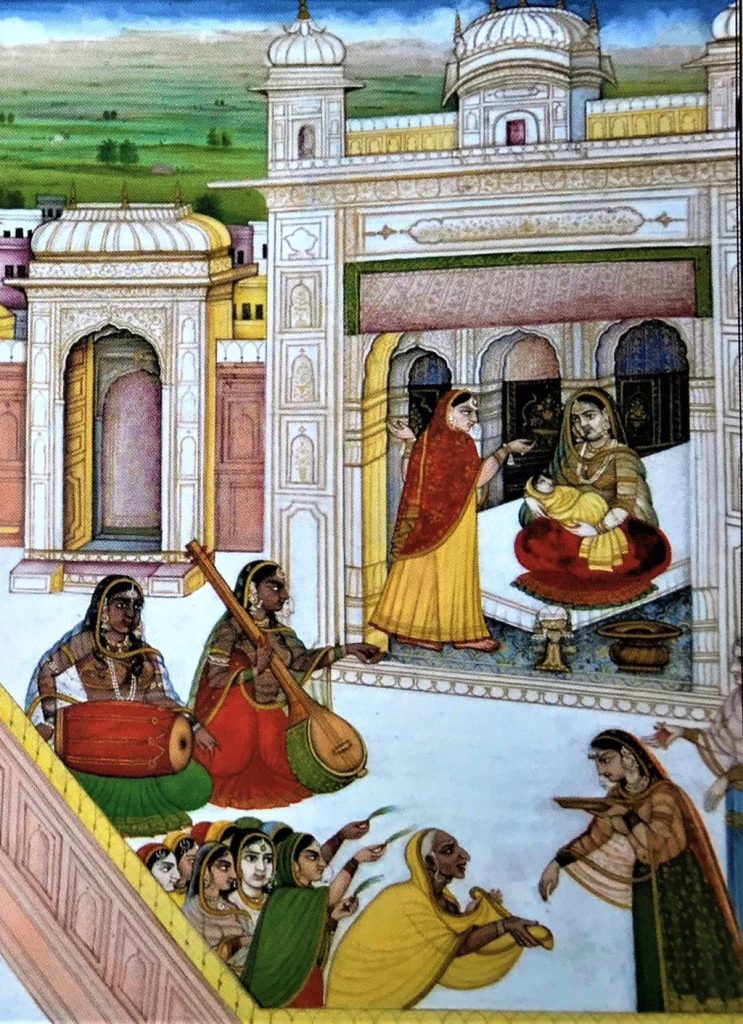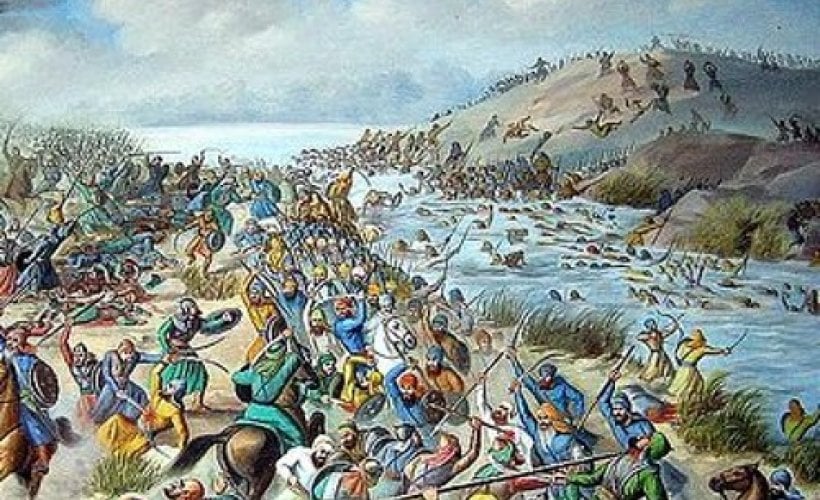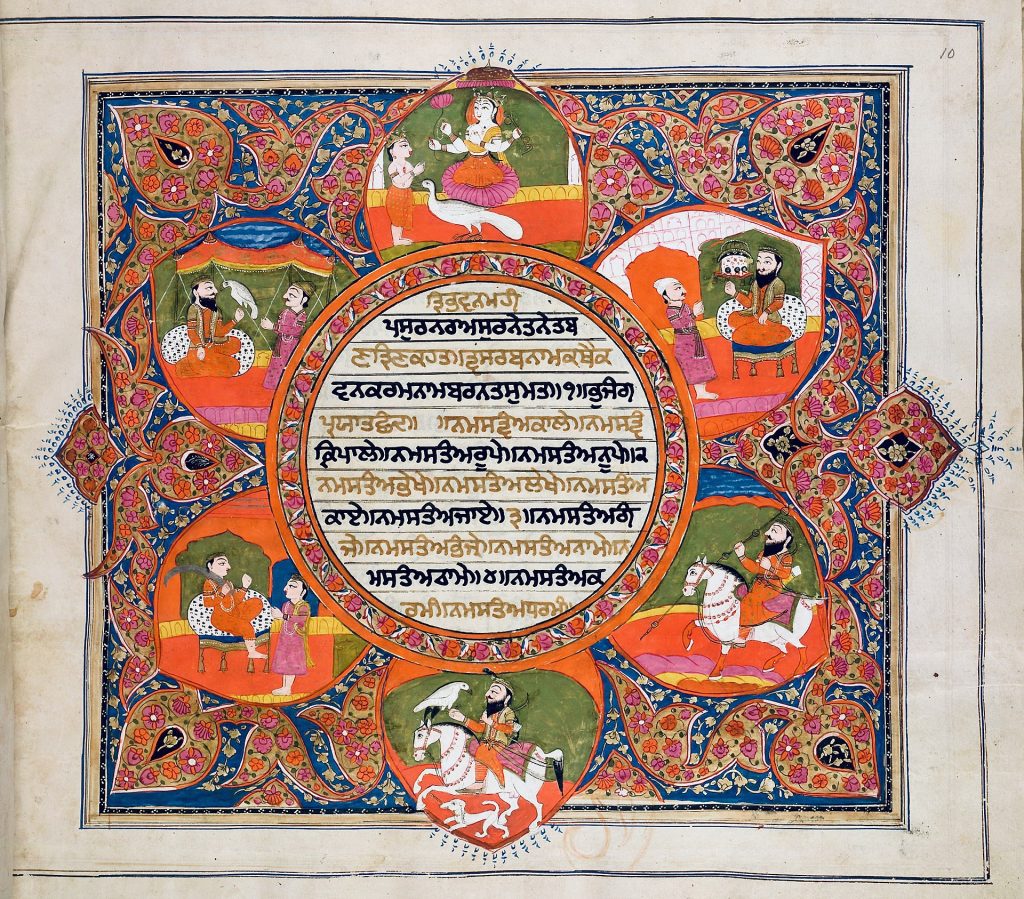Discover the rich history of the Sikhs in 'Twankh Guru Khalsa,' chronicling their journey from origins to the British conquest. A must-read by Giani Gian Singh.
Discover the story of Wafa Begam, her brave quest to rescue Shah Shuja, and the famed Kohinoor diamond in 19th-century India.
AMAR DAS, GURU (1479-1574), the third of the ten Gurus of the Sikh faith, was born into a Bhalla Khatri family on Baisakh sudi 14, 1536 Bk, corresponding to 5 May 1479, at Basarke, a village in present day Amritsar district of the Punjab. His father\'s name was Tej Bhan and mother\'s Bakht Kaur; the latter has also been called by chroniclers variously as Lachchhami, Bhup Kaur and Rup Kaur. He was married on 11 Magh 1559 Bk to Mansa Devi, daughter of Devi Chand, a Bahil Khatri, of the village of Sankhatra, in Sialkot district, and had four children two sons, Mohri and Mohan, and two daughters. Dani and Bhani. Amar Das had a deeply religious bent of mind.
Discover Akal Bunga Sahib Gurudwara in Anandpur. Learn about its historical significance, related to Guru Tegh Bahadur Sahib's legacy and Sikh faith.
BEGA, BHAI, or Bhai Vega. a Pasi Khatri of the village of Dalla, now in Kapurthala district of the Punjab. His name appears among pious and devoted Sikhs of the time of Guru Amar Das in Bhai Gurdas, Varan, XI. 16. He was among the Sikhs who waited upon the Guru when he visited Dalla and received initiation at his hands. See KHANU, BHAI
Discover the story of Bishan Kaur, a devoted Sikh and mother of Mata Gujari, who witnessed the union of her daughter with Guru Tegh Bahadur.
CHHOTA GHALLUGHARA, lit. minor holocaust or carnage, as distinguished from Vadda Ghallughara (q.v.) or major massacre, is how Sikh chronicles refer to a bloody action during the severe campaign of persecution launched by the Mughal government at Lahore against the Sikhs in 1746. Early in that year, Jaspat Rai, the faiydar of Eminabad, 55 km north of Lahore, was killed in an encounter with a roving band of Sikhs. Jaspat Rai\'s brother, Lakhpat Rai, who was a diwan or revenue minister at Lahore, vowed revenge declaring that he would not put on his head dress nor claim himself to be a Khatri, to which caste he belonged, until he had scourged the entire Sikh Panth out of existence.
DELHI SIKH GURDWARAS MANAGEMENT COMMITTEE was a byproduct of the Akali campaign for the reformation of the management of gurdwaras in the Punjab. To wrest control of the holy shrines from the hands of a corrupt and effete priestly order, the Sikhs had set up on 15 November 1920 a body called the Shiromani Gurdwara Parbandhak Committee (SGPC), Amritsar. In 1923, the SGPC took charge of all the historical gurdwaras in Delhi as well, and formed a committee of 11 members known as the Delhi Gurdwara Parbandhak Committee (DGPC) to manage them. The SGPC, however, continued to exercise powers of control and supervision over the affairs of DGPC.
FATEHNAMAH, by Bhai Dyal Singh, is a versified account of the victory (fateh, in Persian) of the Sikhs in the battle fought on Sunday, 22 Baisakh 1854 Bk/30 April 1797, against Shah Zaman`s forces led by one of his generals Ahmad Khan, also called Shahanchi Khan, in which the latter got killed and his forces fled the field. Nothing is known about the poet who, judging from his diction, belonged to the western parts of the Punjab. The poet showers special praise on the Sikh warrior.
Explore Guru Ka Langar, the community kitchen integral to Sikh tradition, fostering equality and unity through shared meals at gurdwaras.








